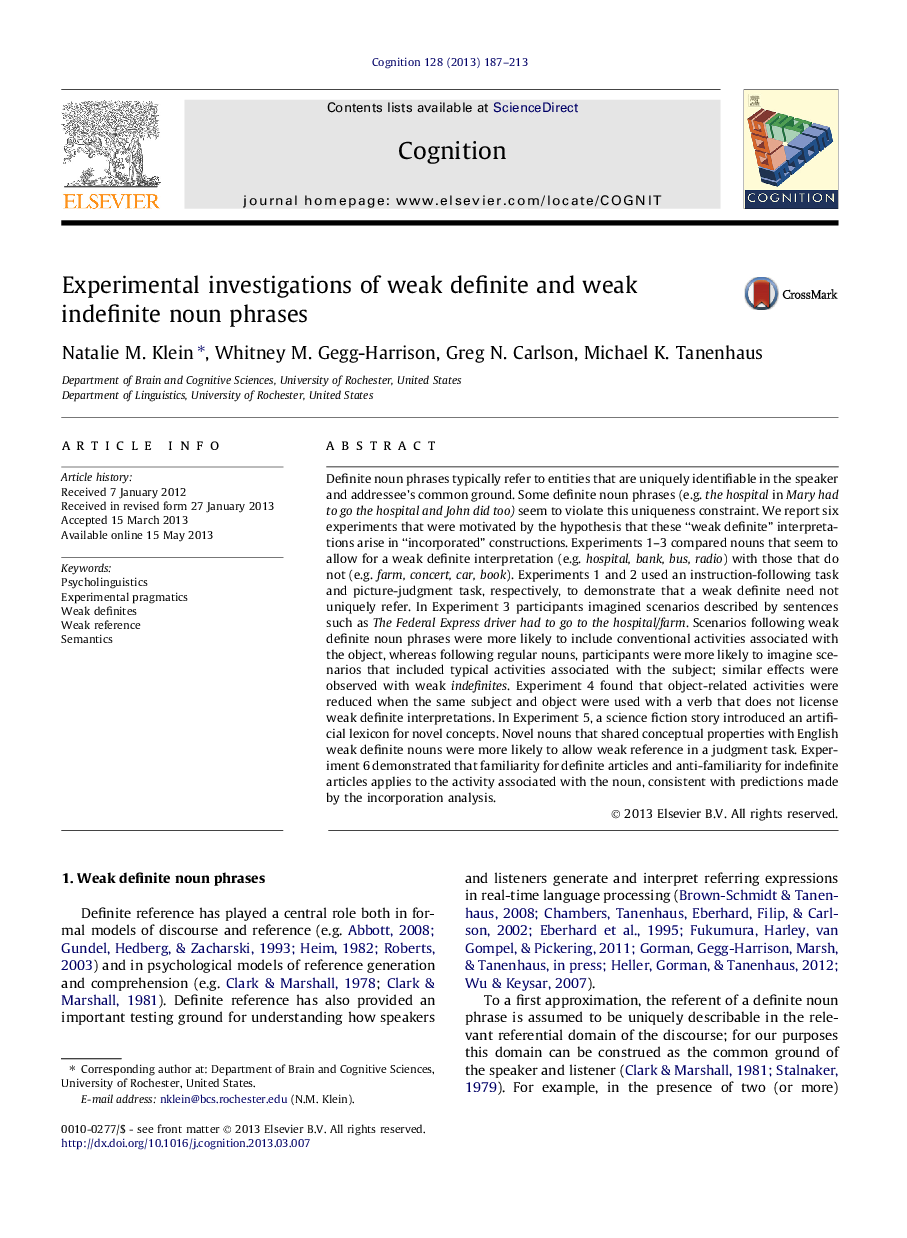| Article ID | Journal | Published Year | Pages | File Type |
|---|---|---|---|---|
| 926712 | Cognition | 2013 | 27 Pages |
•We investigate definite noun phrases that ostensibly lack uniqueness presuppositions.•We show weak definites are interpreted non-uniquely and evoke familiar activities.•Weak (in) definites convey an enriched interpretation to comprehenders.•Conceptual properties can lead to creation of new weak definites in the lexicon.•We apply a novel analysis of weak definites as cases of noun incorporation.
Definite noun phrases typically refer to entities that are uniquely identifiable in the speaker and addressee’s common ground. Some definite noun phrases (e.g. the hospital in Mary had to go the hospital and John did too) seem to violate this uniqueness constraint. We report six experiments that were motivated by the hypothesis that these “weak definite” interpretations arise in “incorporated” constructions. Experiments 1–3 compared nouns that seem to allow for a weak definite interpretation (e.g. hospital, bank, bus, radio) with those that do not (e.g. farm, concert, car, book). Experiments 1 and 2 used an instruction-following task and picture-judgment task, respectively, to demonstrate that a weak definite need not uniquely refer. In Experiment 3 participants imagined scenarios described by sentences such as The Federal Express driver had to go to the hospital/farm. Scenarios following weak definite noun phrases were more likely to include conventional activities associated with the object, whereas following regular nouns, participants were more likely to imagine scenarios that included typical activities associated with the subject; similar effects were observed with weak indefinites. Experiment 4 found that object-related activities were reduced when the same subject and object were used with a verb that does not license weak definite interpretations. In Experiment 5, a science fiction story introduced an artificial lexicon for novel concepts. Novel nouns that shared conceptual properties with English weak definite nouns were more likely to allow weak reference in a judgment task. Experiment 6 demonstrated that familiarity for definite articles and anti-familiarity for indefinite articles applies to the activity associated with the noun, consistent with predictions made by the incorporation analysis.
